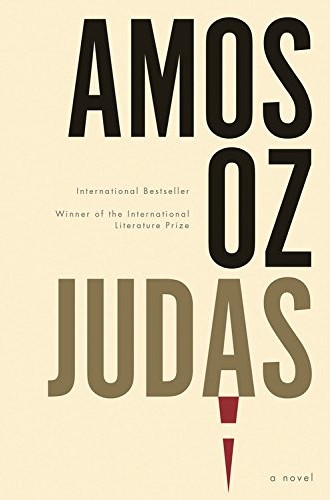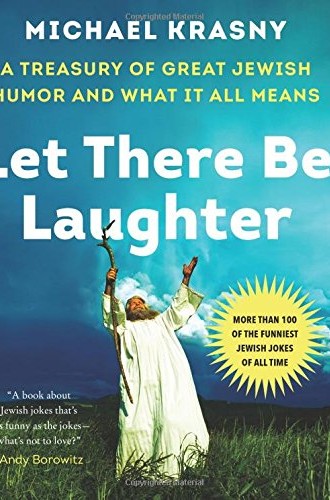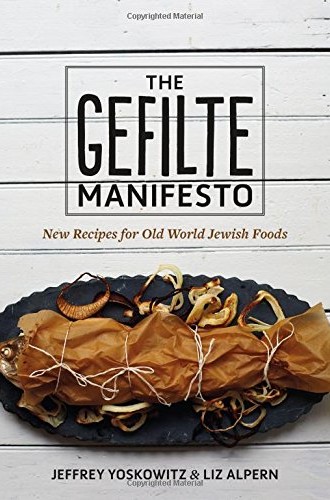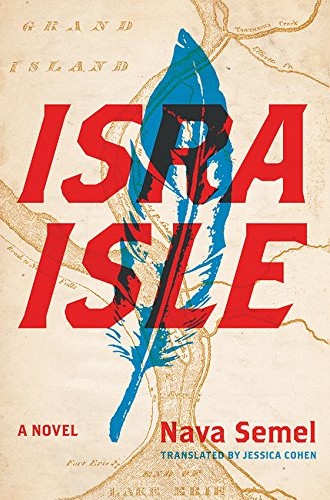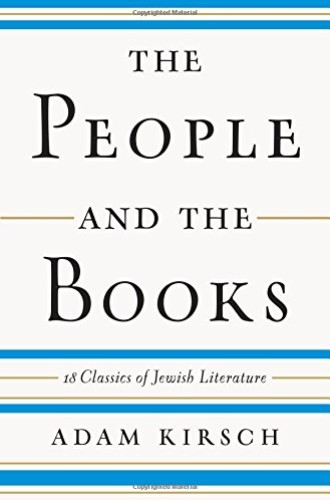Judas: A Novel (Houghton Mifflin Harcourt). Amoz Oz’s 2014 novel, newly translated into English by Nicholas de Lange, is an intellectual biography of Judas, a tender narrative of love and heartbreak, and a thoughtful consideration of the stakes and limits of Israeli politics. The author’s own politics aren’t without controversy, but in this book he draws on universal themes: what it means to be a traitor, the dance of grieving alone while in community, how we communicate across differences. The language is blunt but tender. “Maybe, little by little, we’ll anesthetize you, so it hurts less,” Atalia says to Shmuel, her new houseguest who has just lost his girlfriend and abandoned his master’s thesis. “These walls are accustomed to swallowing pain. Leave the cup—I’ll wash it later.”
Let There Be Laughter: A Treasury of Great Jewish Humor and What It All Means (William Morrow). The adjective Jewish in the title is about as religious as Hannukah is—so don’t expect all the humor in this book to be theological or biblical in nature. But it’s all really funny. Michael Krasny, an English professor and journalist, analyzes the undercurrents of Jewish humor in relationship to a range of issues, including parenting, sex, cultural assimilation, economics, masochism, and suffering. He jokingly parses the (not insignificant) differences between a schlemiel, a schlimazel, and a schmuck. At the same time, he investigates Holocaust-related humor with sensitivity. Like the humor he studies, Krasny celebrates life while dwelling in its deep ambiguities.
The Gefilte Manifesto: New Recipes for Old World Jewish Foods (Flatiron Books). Spiced blueberry soup. Root vegetable latkes. Sweet lokshen kugel with plums. Spicy Hungarian cholent. Mustard slaw. Dark chocolate and roasted beet ice cream. Jeffrey Yoskowitz and Liz Alpern add creative twists to traditional Ashkenazi recipes, which range from ridiculously simple to time-consuming. This book would be worth the price simply for its enticing full-page photographs by Lauren Volo. The cultural and religious commentary that accompanies the recipes is icing on the orange-spiced rye honey cake. The authors are funny, earnest, and inspired by the love of good food and the community it engenders.
Isra Isle: A Novel (Mandel Vilar Press). This intriguing work of speculative fiction based on an historical event, newly translated into English, bridges fantasy with reality through alternate storylines that connect Jewish Israeli culture with Seneca traditions on an island near Buffalo, New York. It is as strange as it sounds, and yet it’s a lovely constellation of stories that touch on questions of faith, integrity, and suffering. “Perhaps the members of your tribe understood that waiting interminably is tantamount to giving up on the promise,” a young Seneca girl whispers to her Jewish companion as he sleeps. “In their persistent demand that Wakan Tanka redeem the dead, the Jews confirm their faith in the Great Spirit. Tinged with doubt and scorched with disappointment, it is nevertheless an act of faith.”
The People and the Books: 18 Classics of Jewish Literature (Norton). Perhaps because I hold the legendary Norton Anthologies in such high esteem, I picked up this book expecting an anthology of primary Jewish literary sources. Not so. It contains something even better: gentle but rigorous commentary and analysis of 18 classic Jewish texts from the Bible to the present day, written by the poet and literary critic Adam Kirsch. Kirsch, who teaches at Columbia University, is an engaging storyteller. He weaves through the book a narrative of thoughtful people asking difficult questions of themselves, each other, and God. This narrative extends questions of the past into the present time through Kirsch’s engaging prose. In the chapter covering Nachman of Bretslav, for instance, Kirsch explains “The task of the Jew is to liberate [the sparks of holiness left over from the Creation] and return them to God, thus hastening the advent of the Messiah; prayers and mitzvot could literally save the world.”


